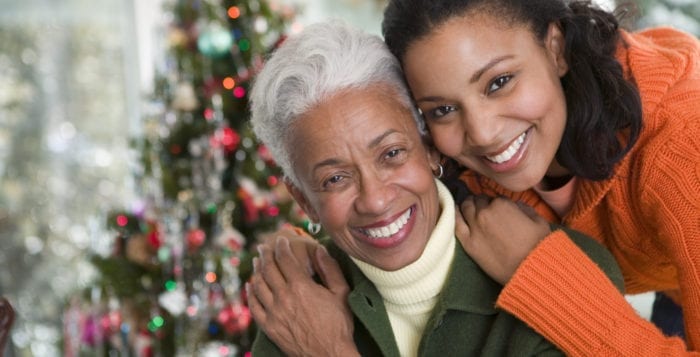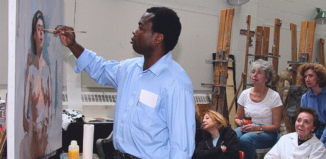Care for the family caregiver
Editors Note: Having recently recognized the dedication of family caregivers nationwide, we offer a timely suggestion for this season. Holiday gatherings are also an ideal opportunity to take note of any changing needs for loved ones that we may see infrequently, and a chance to plan proactively for them in the coming year.
“My wife has dementia and I am going to do what I can to keep her at home.”
“My father died recently and Mom needs our help.”
“My 90-year-old uncle lives across town all alone, so someone in our family visits him every day.”
Family caregivers are some of our nation’s most dedicated heroes — devoted men and women who tirelessly attend to loved ones with an illness, disability or limitations of aging. Each November, America celebrates National Family Caregivers Month to recognize and honor family caregivers across our country. From metropolitan brownstones and urban care facilities to rolling farmsteads and rural assisted living centers, family caregivers compassionately assist parents, spouses, extended family, friends and neighbors.
The Centers for Disease Control and Prevention estimates that 34 million unpaid caregivers nationwide care for someone age 18 or older who is dealing with sickness or disability. These millions represent roughly 21 percent of all U.S. households.
Family caregivers come from diverse backgrounds and care circumstances. She may be the granddaughter stopping by her grandparents’ home twice a week with fresh produce, or the son driving 300 miles every other week to take his father to his cancer treatments. Fueled by love and sacrifice, the role of a volunteer caregiver knows few limits.
Fortunately, a plethora of national and local organizations and online resources are available to family caregivers. For a local list of services and organizations, caregivers can contact federal, county and state government agencies including the U.S. Health and Human Services Department, social services departments and public health departments. The social services department of local hospitals and medical clinics or adult daycare centers and faith-based agencies are other avenues for learning about services and programs available to family caregivers and care recipients.
The following is a summary list of national family caregiver resources:
Family Caregiver Alliance offers services and publications based on caregiver needs at the local, state and national levels. The group’s www.caregiver.org website offers a wealth of helpful information from caregiving tips and fact sheets to personal stories and newsletters.
National Alliance for Caregiving is a nonprofit coalition of national organizations whose www.caregiving.org website connects family caregivers with information, videos, books and more that the alliance reviews and approves as providing beneficial information for caregivers.
Medicare.gov, the official U.S. government site for Medicare, presents easy access to useful information about Medicare and other proven resources to help with family caregiving. The site includes links to partner organizations and essential caregiver information, such as “What type of care is best for your loved one?” and “What every caregiver needs to know.”
This information was provided by Jamie Robinson, president of Right at Home In Home Care and Assistance of Miller Place.







